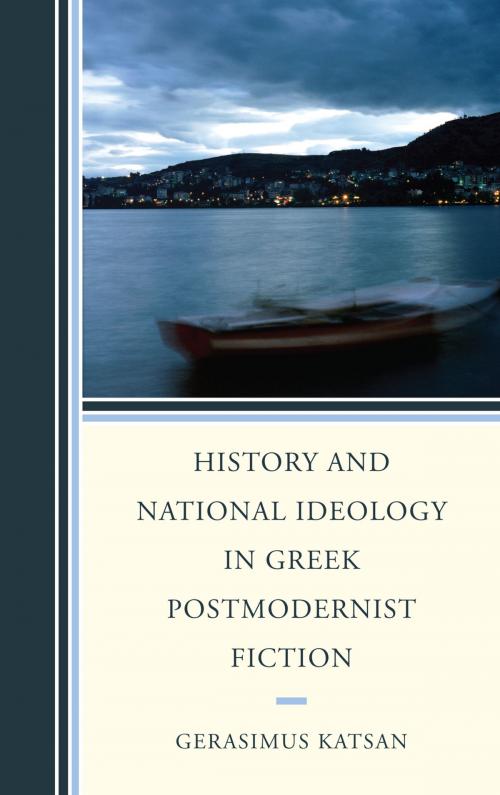History and National Ideology in Greek Postmodernist Fiction
Fiction & Literature, Literary Theory & Criticism, European| Author: | Gerasimus Katsan | ISBN: | 9781611475944 |
| Publisher: | Fairleigh Dickinson University Press | Publication: | April 4, 2013 |
| Imprint: | Fairleigh Dickinson University Press | Language: | English |
| Author: | Gerasimus Katsan |
| ISBN: | 9781611475944 |
| Publisher: | Fairleigh Dickinson University Press |
| Publication: | April 4, 2013 |
| Imprint: | Fairleigh Dickinson University Press |
| Language: | English |
History and National Ideology in Greek Postmodernist Fiction investigates the ways postmodernist literary techniques have been adopted by Greek authors. Taking into consideration the global impetus of postmodernism, the book examines its local implications. Framed by a discussion of major postmodernist thinkers, the book argues for the ability of local cultures to retain their uniqueness in the face of globalization while at the same time adapting to the new global situation. The combination of external global influences and the specific internal concerns of Greek national literature makes the emergence of postmodernism in Greece distinctive from that of other national contexts. The book engages in larger theoretical debates about the “crisis” of national identity in the context of postmodern globalization and the resurgence of nationalist ideology either as a response to globalization or the exigencies of historical events. This crisis has been brought on in part by the very postmodernist and poststructuralist questioning of the ideologies upon which nation-states construct themselves. The central argument of the book is that postmodernist Greek writers question the idea of national identity based on both the impact of globalization and a reexamination of the discourses of national ideology: they suggest a turn away from the traditional concerns with cultural homogeneity towards an acceptance of multiplicity and diversity, which is reflected through experimentation with postmodernist literary techniques. Consequently, the unifying idea of this book is “national identity” as it is reconfigured in recent contemporary novels. My analysis incorporates the view that metafiction is a “borderline” or “marginal” discourse that exists on the boundary between fiction and criticism. The book illuminates the connections between the formal concerns of contemporary authors and the larger debates and philosophical underpinnings of postmodernism in general.
History and National Ideology in Greek Postmodernist Fiction investigates the ways postmodernist literary techniques have been adopted by Greek authors. Taking into consideration the global impetus of postmodernism, the book examines its local implications. Framed by a discussion of major postmodernist thinkers, the book argues for the ability of local cultures to retain their uniqueness in the face of globalization while at the same time adapting to the new global situation. The combination of external global influences and the specific internal concerns of Greek national literature makes the emergence of postmodernism in Greece distinctive from that of other national contexts. The book engages in larger theoretical debates about the “crisis” of national identity in the context of postmodern globalization and the resurgence of nationalist ideology either as a response to globalization or the exigencies of historical events. This crisis has been brought on in part by the very postmodernist and poststructuralist questioning of the ideologies upon which nation-states construct themselves. The central argument of the book is that postmodernist Greek writers question the idea of national identity based on both the impact of globalization and a reexamination of the discourses of national ideology: they suggest a turn away from the traditional concerns with cultural homogeneity towards an acceptance of multiplicity and diversity, which is reflected through experimentation with postmodernist literary techniques. Consequently, the unifying idea of this book is “national identity” as it is reconfigured in recent contemporary novels. My analysis incorporates the view that metafiction is a “borderline” or “marginal” discourse that exists on the boundary between fiction and criticism. The book illuminates the connections between the formal concerns of contemporary authors and the larger debates and philosophical underpinnings of postmodernism in general.















